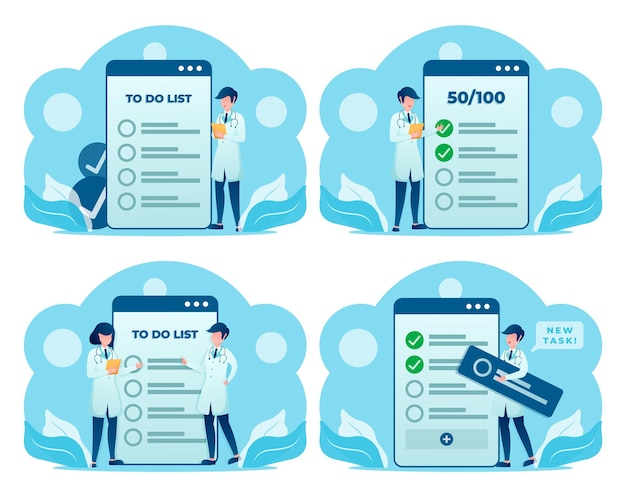
There’s no set rule for how often you should visit a doctor. Some people see their doctor several times a year even when they’re healthy, while others wait until they’re really unwell. Finding the right balance is important and can vary from person to person. Here are some things to think about when deciding how often to see a doctor.
Firstly, consider when you last had a check-up. Even if you received a clean bill of health, don’t start skipping visits altogether. It’s crucial to monitor any changes in your health since your last appointment, such as ignoring a mole that seems bigger or a symptom that persists.
If your doctor suggested a follow-up appointment—be it in six months or two years—make sure to adhere to their schedule. For women starting at age 21, it’s important to get pap smears regularly.
Family medical history is another critical factor. If a close family member has suffered from a serious illness like cancer or heart disease, it’s wise to undergo regular screenings as advised by your doctor.
Age also plays a role in how frequently you should visit a doctor. On average, people consult with their doctors about four times a year. Babies typically need check-ups more often, and the frequency might decrease for young children. However, uninsured individuals often visit the doctor less frequently.
For some, going to the doctor only happens in emergencies, but delaying regular care isn’t ideal, especially for those with financial limitations or no insurance. People at risk of serious conditions need to prioritize regular check-ups. For instance, those with high blood pressure should see a doctor multiple times a year to manage their condition effectively. Pregnant women and individuals undergoing treatment for severe conditions need frequent check-ups, possibly as often as weekly.
Routine check-ups, while beneficial for catching potential health issues early on, should be tailored to personal health needs. For most healthy adults, an annual visit to a primary care doctor suffices, but those with ongoing health concerns should consult with their healthcare provider on a suitable check-up schedule.
Primary care doctors can offer general wellness assessments and help manage long-term health, even consulting with specialists if needed.
For women, annual visits to a gynecologist are crucial for monitoring reproductive health and performing necessary screenings and exams.
Seeing a dentist regularly, about every six months, is important for maintaining oral health and preventing issues like gum disease or cavities.
If you have specific concerns about your skin, vision, or mental health, consider consultations with specialists such as dermatologists, optometrists, or therapists, who may recommend visits based on your individual health conditions.
Preventative healthcare, through regular check-ups and screening, not only helps in maintaining your health but also in catching any potential problems early, which can be crucial for treatment and recovery. Always monitor your health and schedule appointments as needed, even outside of regular check-ups if any concerns arise.